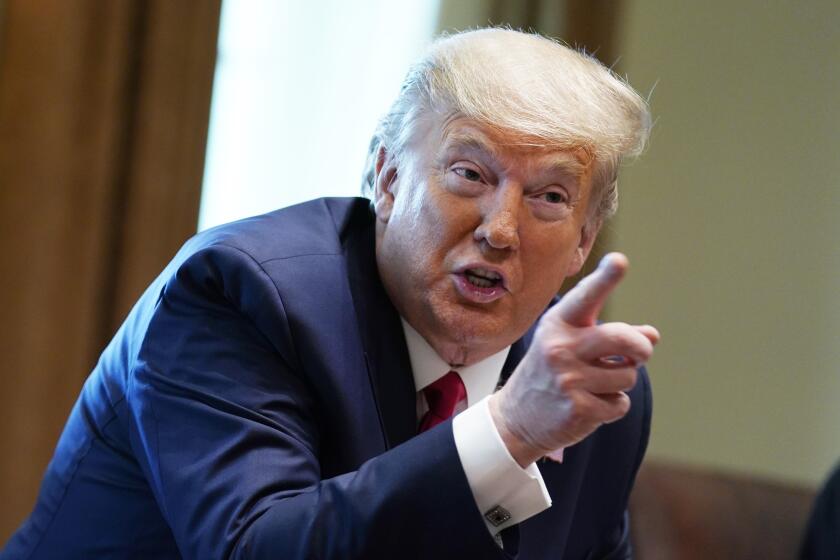U.N. health agency faces two storms: Coronavirus and Trump’s criticism
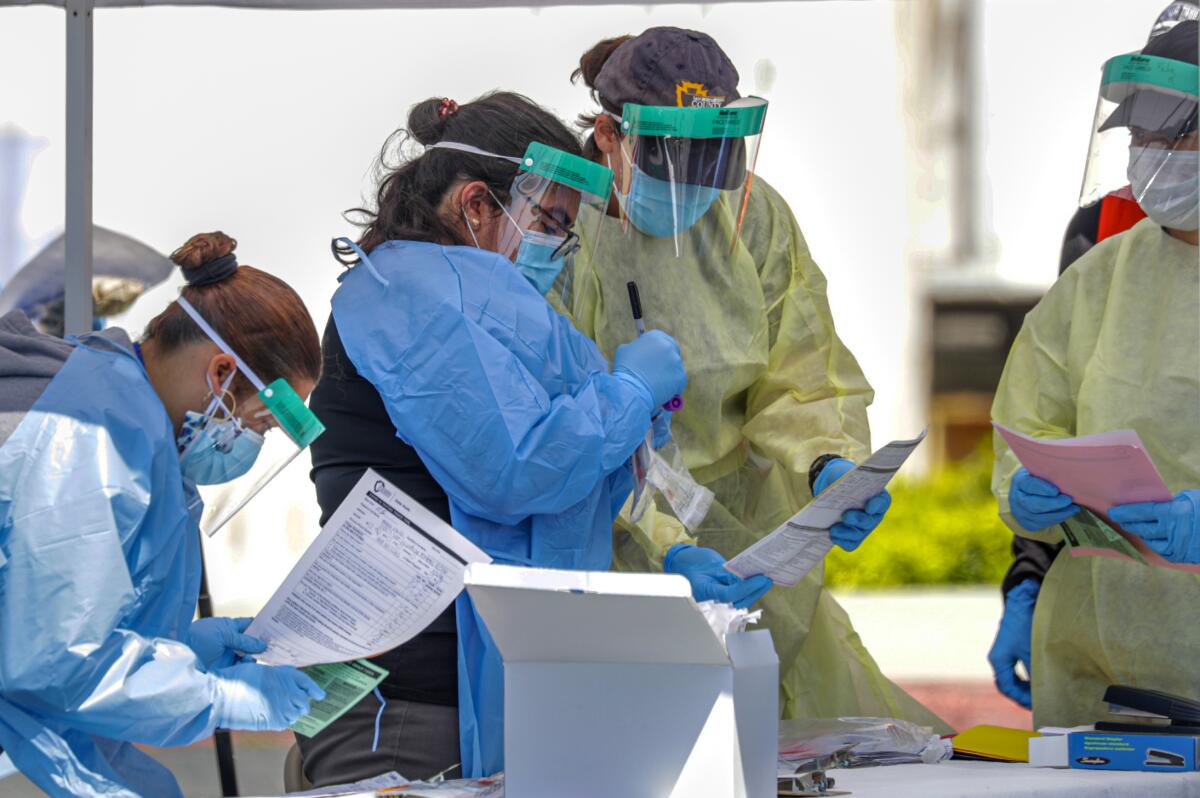
- Share via
What is the WHO? The U.N.’s global health agency, tasked with fighting outbreaks of serious illness, has taken a leading role in the coronavirus crisis, and has also drawn the ire of President Trump.
Speaking at the White House, Trump announced Tuesday that he would temporarily halt U.S. funding for the Geneva-based World Health Organization. That sparked a wave of criticism, some of it fierce, but also highlighted long-standing scrutiny of the agency’s effectiveness in times of crisis.
The world is in the throes of a pandemic whose like has not been seen in a century. Global cases of the new coronavirus stand at more than 2 million, and more than 136,000 people have died. Economies including that of the United States are plumbing depths not seen since the Great Depression, and daily lives have been thrown into chaos by strict stay-at-home orders.
WHO Director-General Tedros Adhanom Ghebreyesus, speaking Wednesday in Geneva, defended the agency’s performance since the virus emerged in China late last year, and expressed regret over Trump’s move. He pledged to work with partners to make up any shortfall and press ahead with the organization’s role as a front-line public health entity.
The agency urged keeping the focus on the coronavirus fight, with special envoy David Nabarro saying in an online briefing that any recriminations should wait until the outbreak is quelled.
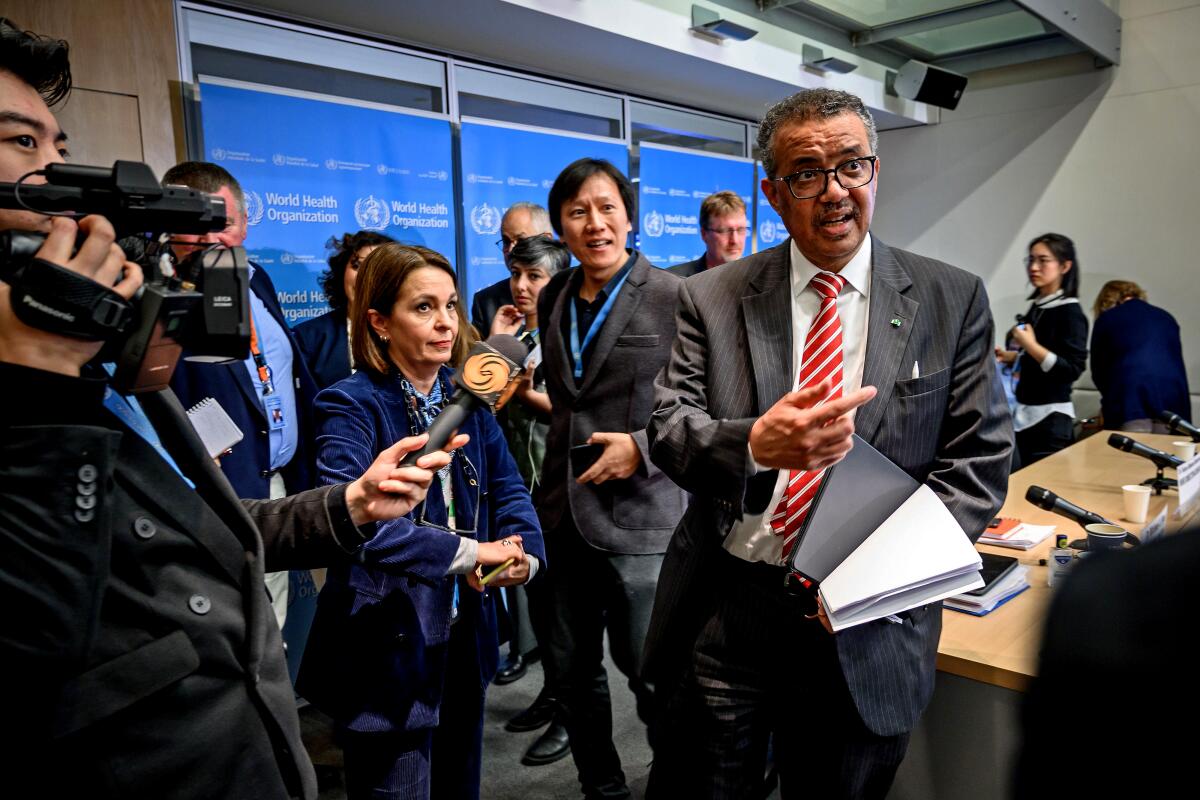
Here is a look at the WHO and its mission:
Where does the money come from?
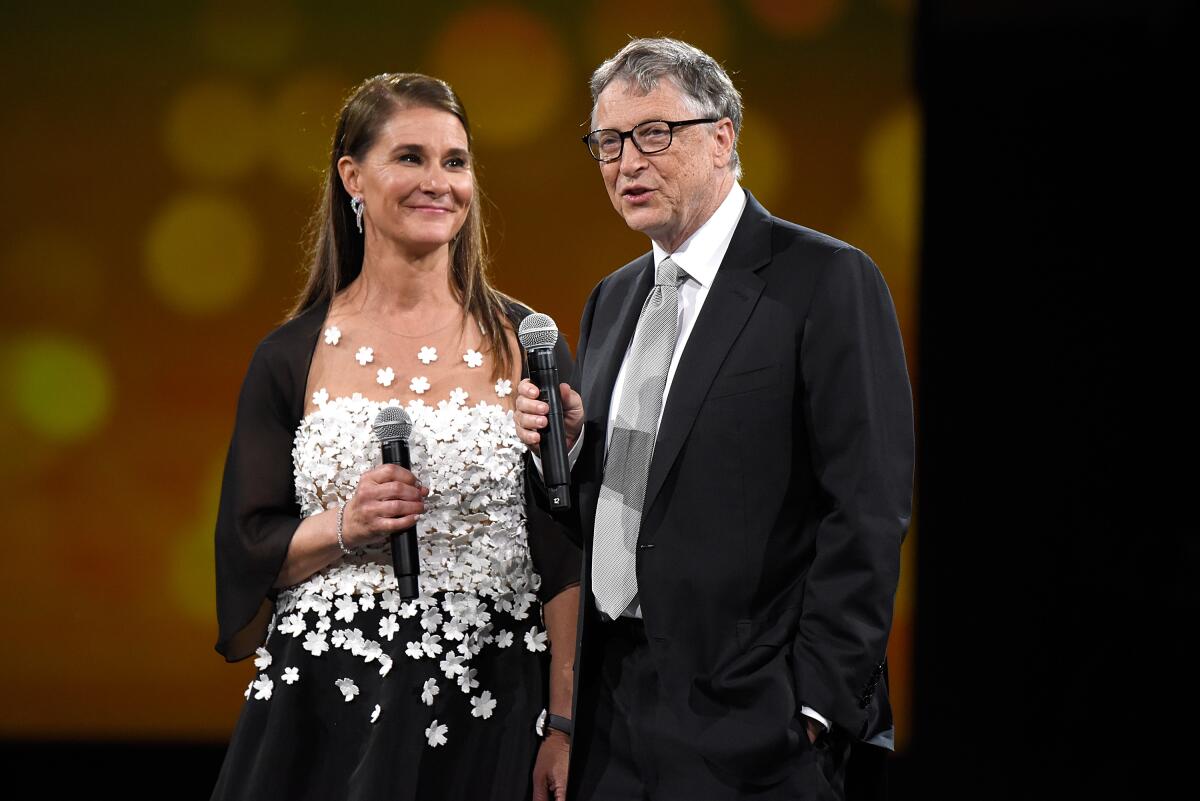
The United States is the largest donor, covering about one-fifth of the organization’s costs with an annual contribution of more than $400 million. Other major funding sources include the Seattle-based Bill and Melinda Gates Foundation, whose work focuses on global health and development, and the United Kingdom, which has pledged more than $80 million to the WHO’s coronavirus response.
WHO receives regular assessed contributions from member states that are earmarked for its principal functions and solicits voluntary funds for specific programs and public health emergencies. It wasn’t immediately known whether any action by the Trump administration would affect both types of funding. And a country’s assessed contributions are normally made toward the end of the year, leaving open the prospect for a resolution before then.
In combating the coronavirus pandemic, Trump’s America-first policies and testy relations with other leaders contributed to a lack of coordination.
When and why was WHO created?
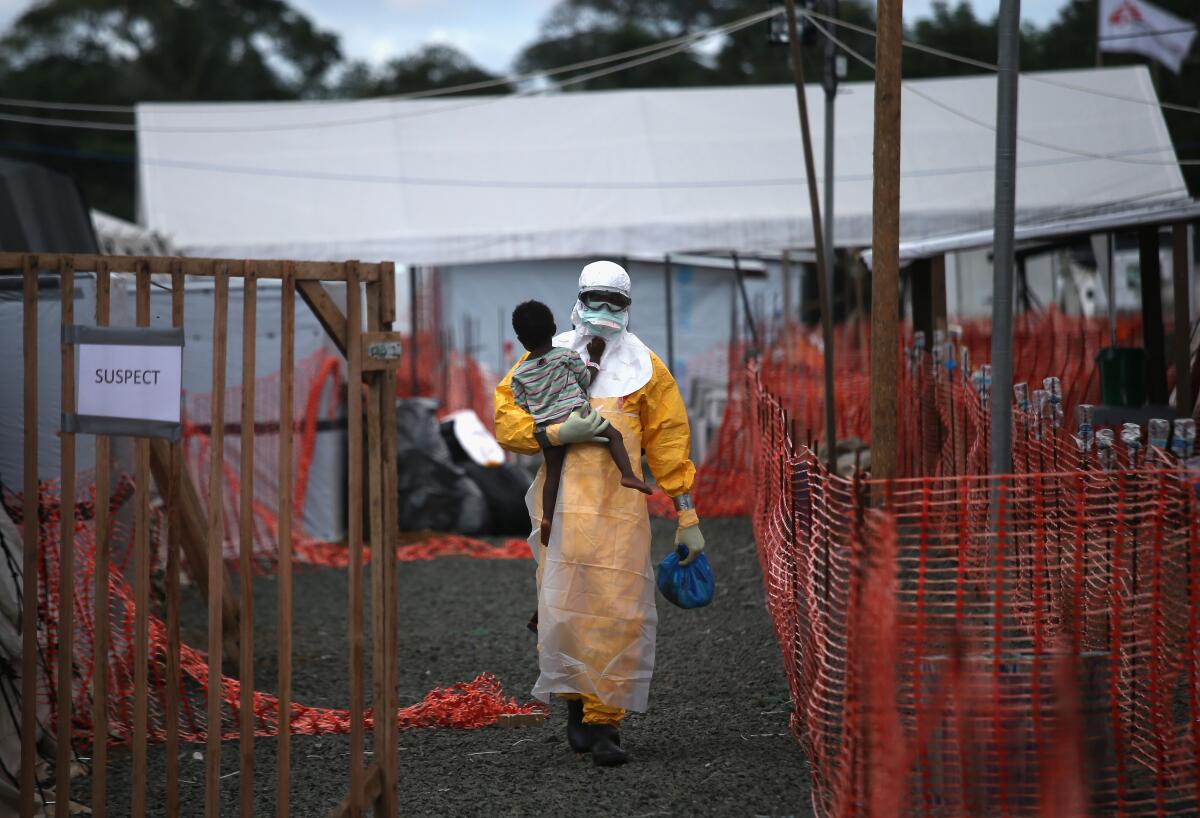
Set up by the United Nations in 1948, the Geneva-headquartered agency’s aim is improving health standards worldwide. WHO now has offices in 150 countries and operates in many others. High-profile actions have included a lead role in the 1970s in the push to eradicate smallpox, and coordination of the international battle against other epidemics, including Ebola. It has also been involved in combating AIDS, malaria, polio and other infectious diseases.
How was Trump’s announcement received?
International reaction was overwhelmingly negative. The foreign policy chief of the 27-nation European Union, Josep Borrell, tweeted that there was “no reason justifying” such a step in the middle of the coronavirus crisis. Bill Gates, also on Twitter, called the move “as dangerous as it sounds.”
U.N. Secretary-General Antonio Guterres deemed the WHO’s role in the coronavirus fight “absolutely critical” and said it should be supported. Germany’s foreign minister, Heiko Maas, wrote on Twitter that “apportioning blame doesn’t help.” China said the United States should fulfill pledges to the organization, and Russia called Trump’s move selfish and ill-timed.
Domestically, the picture was polarized. Public health experts and Trump’s political opponents decried the president’s announcement, even while acknowledging some missteps by the organization. But amid rising criticism of Trump’s own management of the crisis, many among his political base have enthusiastically embraced his escalating attacks on WHO and others on whom he has cast blame, including some governors and the news media.
Coronavirus battle: As governors fight COVID-19 and mull when to ease restrictions, Trump — who claims he ‘calls the shots’ — likens them to mutineers.
What is WHO’s role in the current pandemic?
The agency plays an advisory role in any major public health crisis, especially one with international dimensions. As in past outbreaks, it is helping coordinate research worldwide — this time, into drugs that can be used to treat COVID-19, the disease caused by the coronavirus, and into a potential vaccine. And it issues alerts and assessments of emerging and growing health threats, such as its designation, on March 11, of COVID-19 a pandemic.
What does Trump say about it?
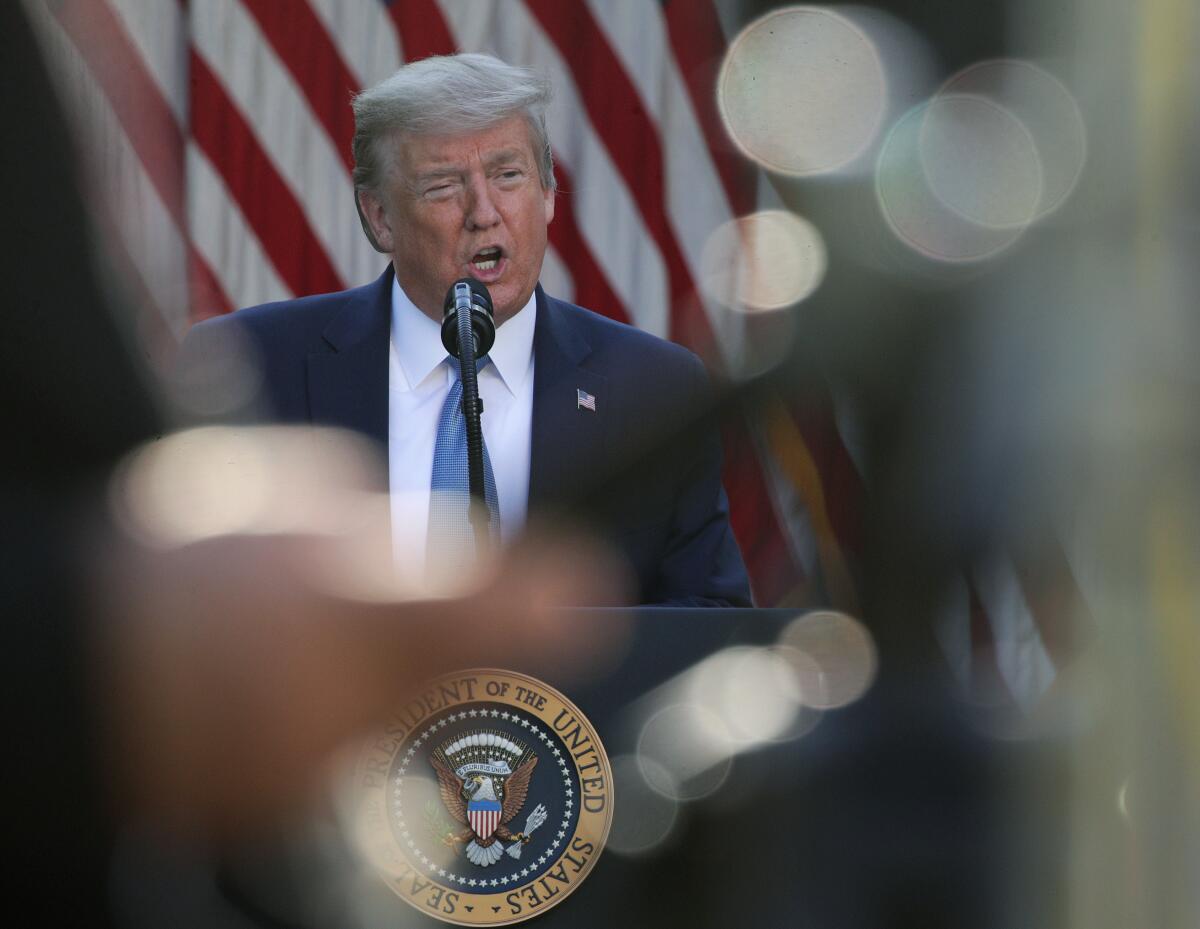
Trump accuses the agency of promoting falsehoods by China, which was initially secretive about the outbreak. At a White House briefing on Tuesday, he railed against the WHO’s larger role, saying that “so much death” had been caused by its “mistakes.”
In addition to blaming the organization as having initially played down the outbreak — as he himself has been criticized for doing more recently — the president has faulted the agency for failing to “get medical experts into China” to investigate the virus, although it has no enforcement powers.
WHO experts were not allowed to visit China and investigate the outbreak until Feb. 10, weeks after mysterious cases of pneumonia appeared in the city of Wuhan.
Under growing criticism for his administration’s laggard response to the coronavirus, President Trump has upped his efforts to blame others — including the WHO, Dr. Anthony Fauci, China, governors and the media.
What were some past controversies for WHO?
After the H1N1 swine flu pandemic in 2009-10, the WHO was accused of overestimating its severity and failing to be transparent about potential conflicts of interest regarding vaccines.
A different but even more damaging scenario played out in 2014, when the organization was pummeled by criticism for failing to act decisively in the face of the deadly Ebola virus outbreak in West Africa. More than 11,000 people died, and the agency’s then-director-general, Margaret Chan, acknowledged serious shortcomings in WHO’s response.
More to Read
Sign up for Essential California
The most important California stories and recommendations in your inbox every morning.
You may occasionally receive promotional content from the Los Angeles Times.

